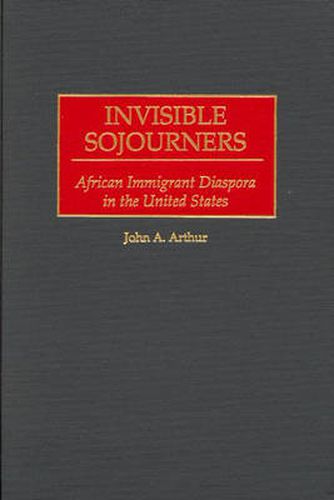Readings Newsletter
Become a Readings Member to make your shopping experience even easier.
Sign in or sign up for free!
You’re not far away from qualifying for FREE standard shipping within Australia
You’ve qualified for FREE standard shipping within Australia
The cart is loading…






Arthur documents the role that Africa’s best and brightest play in the new migration of population from less developed countries to the United States. He highlights how Africans negotiate and forge relationships among themselves and with the members of the host society. Multiple aspects of the African immigrants’ social world, family patterns, labor force participation, and formation of cultural identities are also examined. He lays out the long term aspirations of the immigrants within the context of the geo-political, economic, and social conditions in Africa.
Ultimately, Arthur explains why people leave Africa, what they encounter, their interactions with the host society, and their attitudes about American social institutions. He also provides information about the social changes and policies that African countries need to adopt to stem the tide, or even reverse, the African brain drain. A detailed analysis for scholars, students, and other researchers involved with African and immigration studies and contemporary American society.
$9.00 standard shipping within Australia
FREE standard shipping within Australia for orders over $100.00
Express & International shipping calculated at checkout
Arthur documents the role that Africa’s best and brightest play in the new migration of population from less developed countries to the United States. He highlights how Africans negotiate and forge relationships among themselves and with the members of the host society. Multiple aspects of the African immigrants’ social world, family patterns, labor force participation, and formation of cultural identities are also examined. He lays out the long term aspirations of the immigrants within the context of the geo-political, economic, and social conditions in Africa.
Ultimately, Arthur explains why people leave Africa, what they encounter, their interactions with the host society, and their attitudes about American social institutions. He also provides information about the social changes and policies that African countries need to adopt to stem the tide, or even reverse, the African brain drain. A detailed analysis for scholars, students, and other researchers involved with African and immigration studies and contemporary American society.